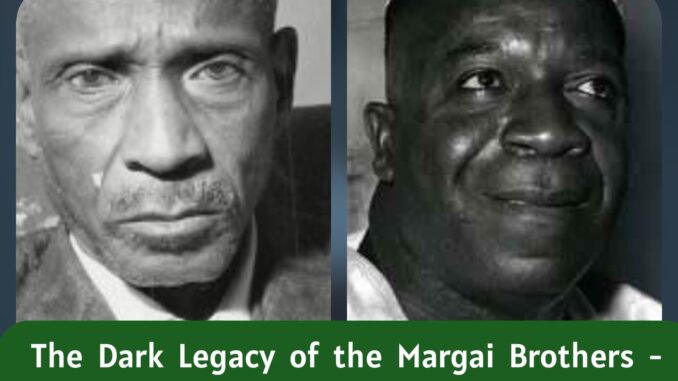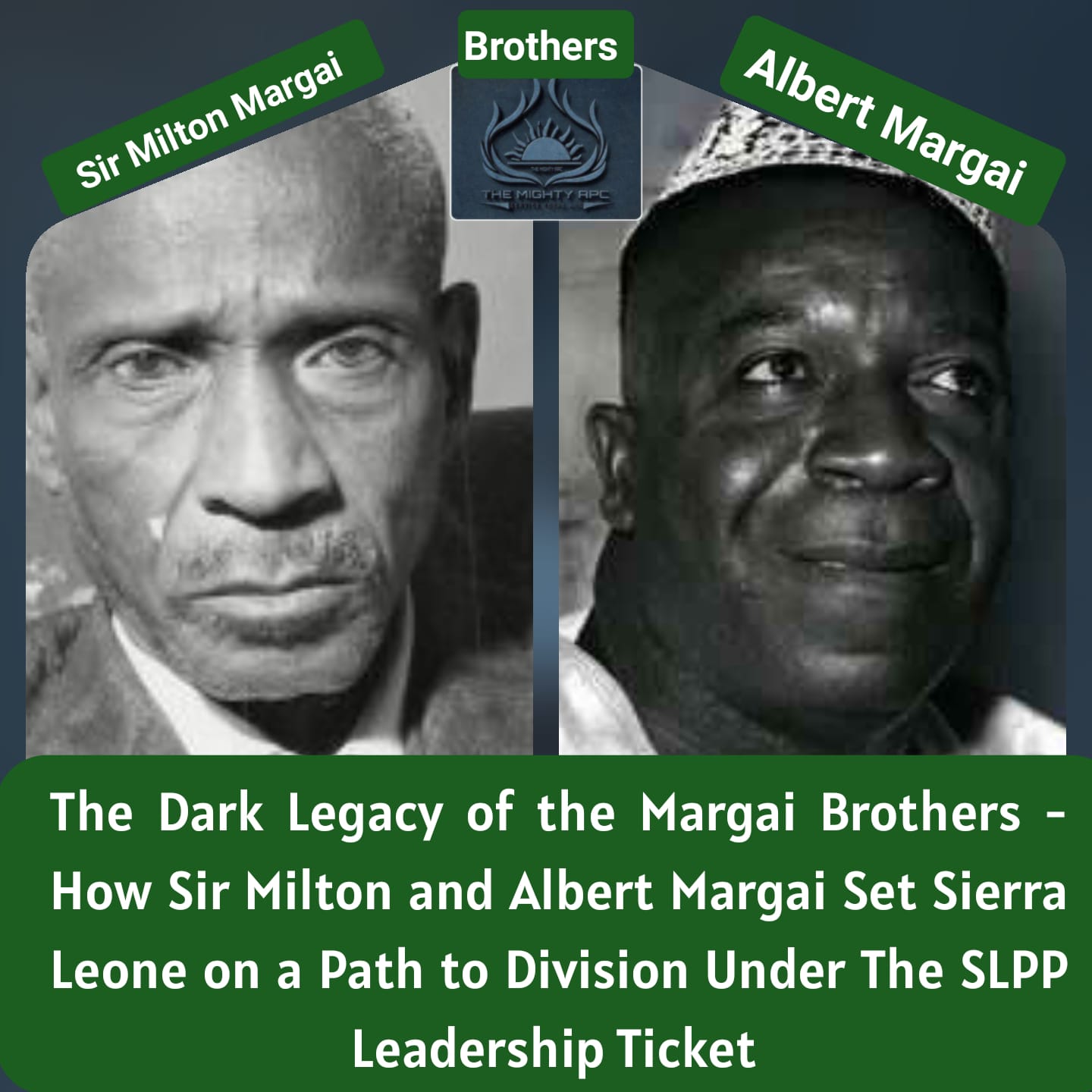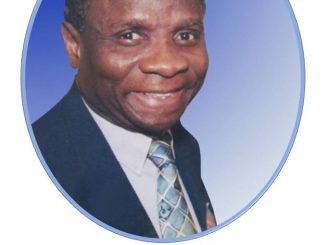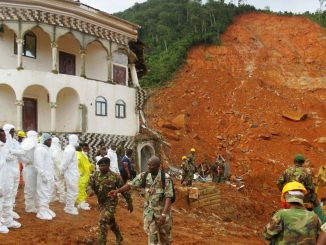
*The Dark Legacy of the Margai Brothers – How Sir Milton and Albert Margai Set Sierra Leone on a Path to Division*
The history of Sierra Leone is often told with a soft brush when it comes to the legacy of the Margai brothers, Sir Milton and Albert Margai. Their role in shaping the country is typically glorified by those who conveniently overlook the devastating impacts of their rule. But the truth is far from flattering. Beneath the surface of independence celebrations and national pride lies a regime characterized by nepotism, tribalism, and a disastrous governance style that has left deep scars in our political landscape to this day.
*Sir Milton Margai: The Father of Tribalism in Sierra Leone*
Sir Milton Margai, often hailed as the father of the nation, built his legacy on shaky foundations. Independence came in 1961, but under Sir Milton, the idea of nationhood was already stained by tribal politics. Let us not mince words: Sir Milton laid the groundwork for tribalism that would haunt Sierra Leone for decades. His administration favored the Mende ethnic group at the expense of others, notably the Temne and other northern tribes.
The first prime minister of Sierra Leone, Sir Milton’s policies were not crafted with the interest of all Sierra Leoneans at heart. He employed the Southern-Mende elites to dominate key political and economic positions, sidelining other ethnic groups, especially the Temne and the Limba. This was not nation-building; this was the creation of a deeply divided society. His government was more interested in securing the dominance of his ethnic kin than building a united Sierra Leone.
*The Nepotism of Sir Milton*
Nepotism was not just an undercurrent in Sir Milton’s rule—it was the defining feature. He filled crucial government positions with his relatives and close Mende allies. By doing this, Sir Milton eroded trust in governance and set a dangerous precedent where meritocracy was dismissed for family connections. Public institutions became extensions of the Margai family business, and the civil service was turned into a network of cronies.
*Albert Margai: A Disastrous Successor*
If Sir Milton was the architect of tribalism and nepotism, his brother Albert Margai took these evils to another level. After the death of Sir Milton in 1964, Albert Margai succeeded him—not through a democratic process but by manipulating the political system to ensure his ascension. His reign from 1964 to 1967 was a complete disaster for Sierra Leone.
Albert Margai was an unrepentant tribalist, doubling down on the Mende-first policies his brother had initiated. He aggressively promoted Mende hegemony and sidelined the Northern tribes even more ruthlessly than Sir Milton had done. His government was marked by blatant favoritism, corruption, and a disdain for national unity.
One of the most damaging actions of Albert Margai’s regime was his attempt to turn Sierra Leone into a one-party state. His goal was clear: cement his family’s control over the country indefinitely. He sought to eliminate any form of political opposition and stifle democratic processes. Sierra Leone was heading towards dictatorship under his watch, a trajectory that would have been disastrous had it succeeded.
*The Seeds of Civil War*
The seeds of Sierra Leone’s brutal civil war, which erupted decades later, were sown during the reign of the Margai brothers. Their politics of exclusion, division, and tribal favoritism created a society where ethnic tensions simmered beneath the surface. When political marginalization is institutionalized, as it was under the Margais, it only takes a spark to ignite widespread conflict.
The discontent in the North, particularly among the Temne and Limba, was a direct result of the Margai brothers’ policies. The sense of exclusion and disenfranchisement these groups felt under Sir Milton and Albert Margai would later fuel political instability. Sierra Leone’s post-independence period was supposed to be one of nation-building, but instead, it became a time when the seeds of discord were sown.
*Lessons for Today’s Sierra Leone*
Today, as we reflect on the Margai brothers’ legacy, we must recognize that the same evils of tribalism and nepotism continue to haunt Sierra Leone. The deep divisions they created are still evident in our politics. Sierra Leoneans must demand better leadership—leaders who see beyond tribe, region, and family ties.
The Margai brothers should be remembered not as heroes of independence but as the leaders who put Sierra Leone on a path to division. Their disastrous regimes should serve as a warning to all who aspire to govern this nation: tribalism, nepotism, and exclusion are a recipe for disaster.
In the end, Sierra Leone deserves leaders who unite, not divide; who elevate meritocracy over family loyalty; and who build a nation for all, not just for a select few. The Margai brothers failed Sierra Leone in these aspects, and their legacy is one we must learn from if we are ever to build a prosperous, united country.
KAM
©️The Mighty APC.





Leave a Reply